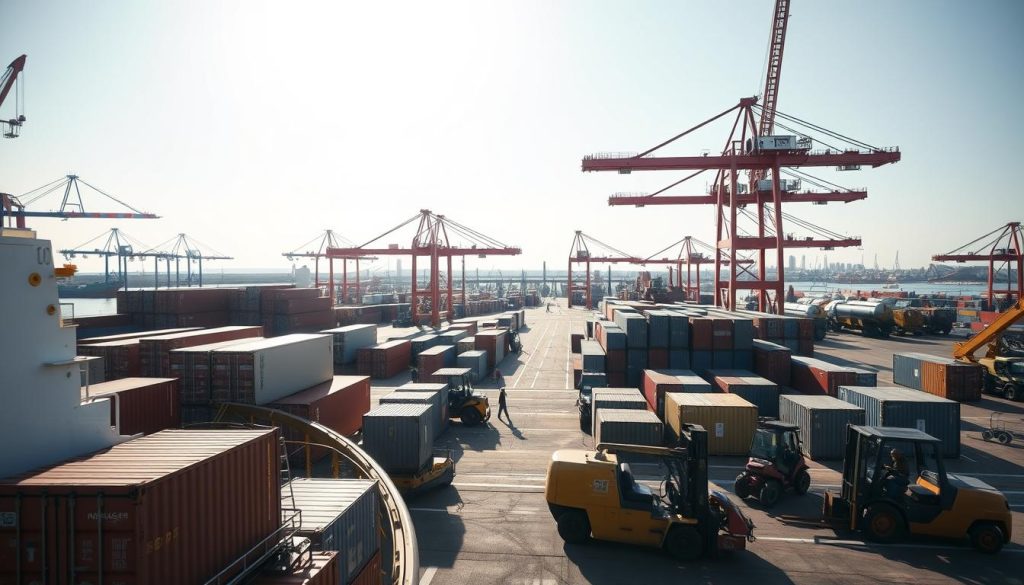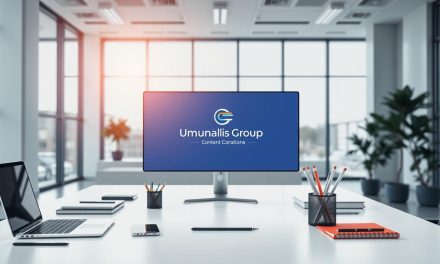Welcome to our guide on finding the perfect professional for your international trade needs. In today’s global economy, businesses face exciting opportunities and complex challenges when trading across borders.
Many companies now participate in global commerce, moving goods between countries. This process requires specific knowledge of regulations, logistics, and market strategies.
Having the right expertise can make a huge difference for your business growth. These professionals help navigate customs, manage projects, and expand your market reach effectively.
We’ll show you how to find qualified experts who understand international commerce. You’ll learn to evaluate credentials and establish successful working relationships.
Table of Contents
Key Takeaways
- Global trade offers significant growth opportunities for businesses willing to expand internationally
- Professional guidance helps navigate complex regulations and customs procedures
- Different experience levels are available to match your specific business needs
- Freelance professionals provide flexible, cost-effective solutions for international trade
- Proper evaluation of credentials ensures you find the right expertise for your operations
- French businesses can benefit from specialists familiar with both local and international markets
Why Your Business Needs an Import/Export Specialist
Expanding your operations across borders opens incredible opportunities. It also brings unique challenges that demand specialized knowledge. Many companies find international commerce intimidating without proper guidance.
Professional support makes global growth achievable. These experts understand how to navigate complex systems. They help you avoid common pitfalls while maximizing profits.
Navigating Complex International Trade Regulations
Every country has its own rules for moving goods. These regulations change frequently and vary dramatically. Without current knowledge, businesses face compliance risks.
Specialists maintain up-to-date understanding of customs requirements. They know tariff codes and documentation needs. This expertise prevents costly delays and legal issues.
« Global trade success depends on understanding local compliance. The right knowledge turns barriers into opportunities. »
French companies benefit from professionals familiar with EU standards. These experts bridge understanding between domestic and international requirements.
Overcoming Language and Cultural Barriers
Communication challenges can derail international deals. Cultural differences affect negotiation styles and business relationships. Professionals with regional experience understand these nuances.
They facilitate smooth interactions between parties. This includes appropriate communication methods and relationship building. Their intervention often makes the difference between success and failure.
Market-specific knowledge proves invaluable for French businesses expanding abroad. It ensures respectful and effective engagement with international partners.
Managing Cross-Border Logistics Efficiently
Moving goods between countries involves multiple coordination points. Shipping carriers, customs brokers, and warehouses must work together. Time zones and documentation add complexity.
Experienced professionals optimize these processes. They select cost-effective transportation methods and routing options. Their management ensures timely delivery while controlling expenses.
| Logistics Challenge | Specialist Solution | Business Benefit |
|---|---|---|
| Customs clearance delays | Proper documentation preparation | Faster time to market |
| Shipping cost overruns | Route optimization strategies | Improved profit margins |
| Regulatory compliance | Current regulation knowledge | Reduced legal risks |
| Cultural misunderstandings | Local business practice expertise | Stronger partner relationships |
The right guidance transforms international operations from daunting to manageable. It turns potential obstacles into competitive advantages for growing businesses.
What Does a Freelance Import/Export Specialist Do?
International trade professionals handle complex daily operations that keep global commerce flowing smoothly. These experts coordinate multiple aspects of cross-border transactions, ensuring goods move efficiently between countries.
Their work involves detailed knowledge of regulations, logistics, and international business practices. They serve as valuable resources for companies expanding their market reach.

Daily Responsibilities in International Trade
These professionals begin each day reviewing shipment statuses and documentation requirements. They prepare essential shipping papers and coordinate with customs brokers across different time zones.
Tracking international shipments forms a core part of their routine. They monitor progress from origin to destination, updating clients regularly.
Managing the complete order cycle represents another critical function. This process starts with purchase order receipt and continues through final customer delivery.
Key Operational Tasks and Management
Operational management requires coordinating between multiple parties simultaneously. Suppliers, freight forwarders, and distribution centers all need careful attention.
These experts handle customs clearance documentation with precision. They ensure all paperwork meets international compliance standards to avoid delays.
Maintaining strong relationships with international partners proves essential. They negotiate rates and service levels with logistics providers to secure best terms.
Many professionals use specialized software for various functions. Shipment tracking, inventory management, and compliance documentation all benefit from technology solutions.
« Effective trade management turns logistical challenges into competitive advantages for growing businesses. »
Problem-Solving in Global Supply Chains
Supply chain disruptions require immediate attention and creative solutions. Shipping delays, customs holds, and damaged goods demand quick resolution.
These professionals develop contingency plans for potential issues. Port strikes, weather events, or political instability can affect trade routes unexpectedly.
For French businesses, they often handle both EU internal market transactions and exports to non-EU countries. This dual focus requires adaptable problem-solving approaches.
| Common Challenge | Professional Response | Business Impact |
|---|---|---|
| Documentation errors | Immediate correction and resubmission | Prevents customs delays |
| Shipping route disruptions | Alternative routing arrangements | Maintains delivery timelines |
| Customs compliance issues | Regulatory expertise application | Avoids penalties and fines |
| Communication barriers | Multi-lingual coordination | Ensures smooth operations |
| Cost overruns | Negotiation and optimization | Protects profit margins |
The right operational expertise transforms international trade from challenging to manageable. Professionals with strong problem-solving skills turn potential obstacles into success stories.
Core Services Offered by Import/Export Professionals
International trade experts provide comprehensive solutions that streamline global operations. These professionals deliver specialized support across multiple business functions.
Their work spans from initial market research to final delivery coordination. They help businesses navigate complex international requirements efficiently.
Customs Documentation and Compliance
Proper paperwork forms the foundation of successful cross-border transactions. Experts prepare accurate commercial invoices and packing lists.
They handle certificates of origin and other essential documents. Compliance specialists ensure shipments meet all destination country regulations.
- Complete customs declaration preparation
- Product safety and labeling compliance checks
- Import restriction verification and management
- Regulatory updates and advisory services
These professionals prevent costly delays and legal complications. Their knowledge keeps your operations running smoothly.
International Shipping and Logistics Management
Transportation coordination requires careful planning and execution. Experts select optimal carriers based on your specific needs.
They negotiate competitive freight rates and arrange cargo insurance. Multi-modal transportation coordination ensures efficient movement.
« Effective logistics management turns geographical challenges into competitive advantages for global businesses. »
Professionals handle ocean freight, air cargo, and ground transportation. They provide real-time tracking and issue resolution throughout the shipping process.
Market Research and Sourcing Strategies
Successful international expansion begins with thorough market analysis. Experts identify viable markets and assess local competition.
They develop pricing strategies tailored to each region. Sourcing professionals find reliable suppliers and negotiate favorable terms.
Quality control management ensures product standards are maintained. Many offer specialized support for e-commerce platform integration.
| Service Category | Specific Offerings | Client Benefits |
|---|---|---|
| Market Research | Competitive analysis and pricing studies | Informed market entry decisions |
| Supplier Sourcing | Vendor identification and qualification | Reliable supply chain partners |
| E-commerce Support | Platform integration and product listing | Expanded online presence |
| Regional Expertise | Francophone market knowledge | Cultural and business alignment |
These comprehensive services help businesses expand confidently into new markets. Professional guidance transforms international trade from challenging to manageable.
Essential Qualifications of a Competent Specialist
Professional credentials separate competent trade experts from general business consultants. The right combination of education, technical skills, and industry knowledge creates exceptional performance in global operations.
These qualifications ensure your international projects run smoothly from start to finish. They transform complex challenges into manageable solutions for growing businesses.
Educational Background and Certifications
Strong academic foundations typically include degrees in business or supply chain management. Many top professionals graduate from accredited institutions with relevant focus areas.
Advanced certifications demonstrate commitment to ongoing professional development. These credentials validate expertise in specific aspects of global commerce.
- Bachelor’s or Master’s degrees in International Business or Logistics Management
- Certified Global Business Professional (CGBP) accreditation
- Certified Export Specialist (CES) designation
- Additional training in customs regulations and compliance standards
These educational achievements provide the theoretical knowledge needed for complex international operations. They form the foundation for practical application in real-world scenarios.
Technical Knowledge and Software Proficiency
Modern trade requires sophisticated technical skills across multiple platforms. Professionals must navigate various software systems efficiently.
ERP system experience is particularly valuable for inventory and order management. These systems help track products throughout the entire supply chain.
« Technology proficiency transforms data into actionable insights for international trade success. »
Software skills should include customs declaration systems and shipment tracking platforms. Database management capabilities also prove essential for compliance documentation.
Industry-Specific Expertise Requirements
Specialized knowledge makes professionals particularly valuable for specific sectors. Different industries face unique regulatory and logistical challenges.
Some experts focus on pharmaceutical products or perishable goods transportation. Others specialize in hazardous materials or high-value items requiring special handling.
Language capabilities greatly enhance effectiveness in international markets. Multiple language fluency improves communication with partners and officials.
Financial understanding includes international payment methods and currency considerations. This knowledge helps manage budgets and control costs effectively.
| Qualification Category | Specific Requirements | Business Value |
|---|---|---|
| Educational Background | Degree in Business or Supply Chain Management | Strong theoretical foundation |
| Technical Skills | ERP systems and compliance software | Efficient operation management |
| Industry Knowledge | Product-specific regulations and handling | Specialized problem-solving |
| Language Capabilities | Multiple language fluency | Enhanced communication |
| Financial Understanding | International payments and currency | Cost control and budgeting |
| Regulatory Knowledge | Incoterms 2020 and trade agreements | Compliance and risk reduction |
The right combination of qualifications ensures your international projects receive expert handling. These professionals bring both broad knowledge and specific expertise to every engagement.
Understanding Experience Levels: From 150 to 600 Jour Expérience
Choosing the right professional for your international trade needs depends on understanding experience measurements. The jour expérience system provides a clear picture of actual hands-on work days rather than just calendar years.
This measurement method helps businesses match their specific requirements with appropriate expertise levels. It ensures you get the right support for your particular situation.
Entry-Level Specialists (1-3 ans / 150-250 jour expérience)
Professionals with 150-250 jour expérience typically handle routine documentation tasks. They manage basic shipment coordination and straightforward customs paperwork.
These experts are perfect for businesses with simple trade needs. They offer cost-effective solutions for companies starting their global journey.
Their services include standard documentation preparation and basic logistics coordination. They work well under supervision for established processes.
Mid-Level Professionals (4-6 ans / 300-400 jour expérience)
Experts with 300-400 jour expérience handle more complex operational challenges. They troubleshoot common issues and manage multiple shipment types simultaneously.
This experience level provides excellent value for regular international activities. These professionals offer reliable problem-solving skills.
They typically manage complete shipment cycles from origin to destination. Their expertise includes route optimization and cost management strategies.
Senior Experts (7-9 ans / 500-600 jour expérience)
Top-tier professionals with 500-600 jour expérience handle the most complex scenarios. They develop strategic plans and manage critical relationships.
These experts often possess established networks with customs officials and logistics partners. Their experience translates into efficient problem resolution.
Senior specialists justify higher rates through demonstrated results and time savings. They provide strategic guidance beyond operational management.
| Experience Level | Typical Capabilities | Ideal For Businesses | Project Complexity |
|---|---|---|---|
| 150-250 jour expérience | Basic documentation, routine coordination | Starting international operations, limited budget | Simple, standardized processes |
| 300-400 jour expérience | Complex shipment management, issue resolution | Regular trade activity, growing operations | Moderate complexity, multiple destinations |
| 500-600 jour expérience | Strategic planning, network relationships | Complex operations, high-value shipments | High complexity, strategic requirements |
French companies should evaluate their specific trade volume and complexity needs. The right experience level ensures efficient operations and cost-effective solutions.
Different jour expérience levels command appropriate rate structures based on their value delivery. Businesses receive corresponding expertise matching their investment level.
Key Benefits of Hiring a Freelance Import/Export Specialist
Engaging a professional for your international trade activities brings multiple advantages that directly impact your bottom line. These experts offer tailored solutions that adapt to your specific business requirements and market conditions.

Many companies discover significant value in working with external professionals. These arrangements provide specialized support without the overhead of permanent staff.
Cost-Effective Expertise Without Full-Time Commitment
Working with external professionals eliminates numerous fixed expenses. You avoid costs associated with benefits, office space, and equipment for additional employees.
This approach lets you pay only for the specific services you require. Whether you need help with a single shipment or ongoing trade management, you control your spending.
The financial savings can be substantial compared to maintaining an in-house department. This makes professional guidance accessible to businesses of all sizes.
Flexibility for Project-Based International Trade Needs
External professionals offer remarkable adaptability to changing business conditions. You can scale support up or down based on seasonal demand or new market opportunities.
This flexibility proves invaluable for companies with fluctuating trade volumes. You maintain expert support during busy periods without year-round expenses.
Many professionals work remotely, making their expertise available regardless of your location. This accessibility benefits businesses throughout France and beyond.
Access to Specialized Knowledge on Demand
These professionals bring current understanding of market trends and regulations. Their formal education and continuous training ensure they handle evolving requirements effectively.
You gain access to specific market or product expertise without maintaining in-house staff. This knowledge proves particularly valuable for complex or specialized shipments.
Working with multiple clients gives these experts diverse experience across industries. They bring best practices and innovative solutions from various business environments.
« On-demand expertise transforms international trade from overwhelming to manageable for growing businesses. »
French SMEs particularly benefit from this accessible professional support. It provides affordable entry into global markets with reduced risk and investment.
| Business Need | Professional Solution | Direct Benefit |
|---|---|---|
| Regulatory compliance | Current knowledge application | Reduced risk and delays |
| Cost management | Project-based pricing | Controlled expenses |
| Market expansion | Specialized regional knowledge | Successful market entry |
| Operational efficiency | Experience across industries | Improved processes |
| Resource allocation | Flexible engagement terms | Optimized staffing |
The right professional relationship transforms how you approach global commerce. It turns potential challenges into opportunities for growth and efficiency.
Where to Find Qualified Freelance Import/Export Specialists
Discovering the right professional for your international operations requires knowing where to look. Several excellent resources connect businesses with skilled trade experts.
Each source offers unique advantages depending on your specific needs. Some provide immediate access while others offer deeper vetting processes.
Professional Freelance Platforms and Directories
Online marketplaces have transformed how businesses find talent. Platforms like Guru.com serve as leading spaces for trade operations professionals.
Employers can post projects free and receive quotes quickly. You can compare offers and select the best fit for your budget.
These sites provide secure payment systems and project management tools. Freelancer.com shows impressive client satisfaction with 4.92 stars from 8,047 reviews.
You’ll find professionals with various experience levels. This includes experts with 150 to 600 jour expérience.
Industry Associations and Trade Networks
Professional organizations maintain directories of qualified members. The French Foreign Trade Advisors connect businesses with vetted professionals.
Regional export clubs offer networking opportunities with local experts. These specialists understand both international and French market requirements.
Trade networks often categorize professionals by industry focus. You can find experts familiar with your specific product category.
Many associations verify credentials and maintain quality standards. This ensures you connect with truly competent professionals.
« The right platform matches your business with professionals who understand both global markets and local requirements. »
Referrals and Professional Recommendations
Personal recommendations often lead to the most reliable professionals. Business associates can share contacts of experts they’ve worked with successfully.
Bankers and other service providers frequently know qualified trade consultants. These referrals come with built-in trust through existing relationships.
LinkedIn networks allow you to view credentials and recommendations. You can connect directly with professionals showcasing their commerce international expertise.
Trade events and business conferences provide meeting opportunities. You can discuss projects face-to-face with potential candidates.
French companies benefit from local business networks. Chambers of commerce and export agencies maintain lists of recommended professionals.
These sources help find specialists familiar with French export procedures. They understand both international standards and local business practices.
| Source Type | Key Features | Best For |
|---|---|---|
| Online Platforms | Quick access, multiple quotes, secure payments | Urgent projects, budget comparisons |
| Industry Associations | Vetted professionals, quality standards | Complex projects, specialized expertise |
| Personal Referrals | Trusted recommendations, proven track records | Long-term relationships, critical operations |
| Business Networks | Local knowledge, cultural understanding | French companies, EU market focus |
Each sourcing method offers different advantages for your search. The best approach often combines multiple channels for comprehensive results.
Evaluating Potential Freelance Import/Export Specialist Candidates
Finding the right professional for your global trade operations requires careful evaluation. You want someone who can handle your specific needs and deliver results.
Proper assessment ensures you select the best match for your business. This process involves reviewing credentials and verifying performance history.

Let’s explore key evaluation methods that help identify top talent. These approaches give you confidence in your hiring decisions.
Reviewing Portfolios and Past Project Success
Examine detailed work histories showing completed projects. Look for specific goods handled and destinations served.
Case studies demonstrate problem-solving abilities and successful outcomes. They show how professionals handle real-world challenges.
Portfolios should include various project types and complexity levels. This shows adaptability across different situations.
« A strong portfolio tells the story of consistent performance and reliable results in international commerce. »
Checking References and Client Testimonials
Always request and carefully review client feedback. Pay attention to comments about reliability and delivered results.
Platform ratings on sites like Guru provide valuable insights. All-time transaction data reveals performance history.
Speaking directly with former clients offers the clearest picture. They share firsthand experiences with the professional’s work.
Assessing Communication and Problem-Solving Skills
Evaluate responsiveness and clarity during initial consultations. Note professional demeanor and language proficiency.
Discuss hypothetical trade scenarios to test problem-solving abilities. Ask about past challenges they’ve successfully overcome.
Verify specific experience with your industry or product type. This ensures relevant expertise for your operations.
| Evaluation Area | Key Indicators | What to Look For |
|---|---|---|
| Portfolio Review | Project diversity and complexity | Handled similar goods and destinations |
| Reference Checks | Client satisfaction levels | Consistent positive feedback |
| Platform Ratings | All-time transaction data | High ratings and repeat clients |
| Communication Skills | Response time and clarity | Professional and clear explanations |
| Problem-Solving | Scenario responses | Creative and practical solutions |
| Industry Experience | Specific product knowledge | Familiarity with your sector |
Check for professional certifications and trade organization memberships. These indicate commitment to ongoing education.
For French businesses, verify experience with EU trade regulations. Ensure understanding of French export documentation requirements.
This comprehensive evaluation process helps you find the perfect match. It ensures successful partnerships and smooth international operations.
Important Questions to Ask During the Hiring Process
Finding the right professional for your global trade needs involves asking the right questions. These conversations help you understand their capabilities and ensure they match your requirements.
Good questions reveal both technical knowledge and problem-solving abilities. They show how professionals handle real-world challenges in international commerce.
Let’s explore key areas to cover during your interviews. These questions help identify the best match for your business.
Inquiries About Specific Industry Experience
Begin by asking about their background with your product category. Different goods face unique regulatory and logistical challenges.
Food products require sanitary standards knowledge. Electronics need safety compliance understanding.
Ask about their experience with your target markets. Regional knowledge affects customs clearance and market entry strategies.
For French companies, verify familiarity with EU trade procedures. This ensures smooth operations within and beyond European borders.
« The right questions reveal not just what professionals know, but how they apply that knowledge to your specific situation. »
Questions Regarding Regulatory Knowledge
Discuss their understanding of Incoterms and international sales contracts. These terms define responsibilities and risks in global transactions.
Ask about customs clearance approaches in your target countries. Relationships with customs brokers can significantly impact clearance times.
Inquire about specific regulations affecting your industry. Professionals should demonstrate current knowledge of relevant compliance requirements.
Verify their experience with French export documentation if you’re based in France. This includes understanding specific forms and procedures.
Discussing Approach to Challenges and Setbacks
Ask about their process for handling shipment delays or customs holds. These situations test problem-solving skills and experience levels.
Inquire about communication protocols during critical phases. Professionals should keep clients informed throughout the shipping process.
Discuss their experience with international payment methods. Currency exchange risk management proves important for cost control.
Request examples of how they’ve helped clients save money or improve efficiency. Real-world success stories demonstrate practical value.
| Question Category | Sample Questions | Purpose |
|---|---|---|
| Industry Experience | What specific products have you handled? Which markets are you most familiar with? | Assess relevant background and expertise |
| Regulatory Knowledge | How do you stay current with regulation changes? What Incoterms do you recommend for our products? | Verify compliance understanding |
| Problem-Solving | How do you handle customs delays? What’s your process for resolving shipment issues? | Evaluate crisis management skills |
| Communication | How often do you provide updates? What information do you share during critical phases? | Assess client relationship management |
| Financial Management | How do you manage currency risks? What cost-saving strategies have you implemented? | Understand financial oversight capabilities |
These questions help you evaluate both technical knowledge and practical experience. They ensure you find a professional who can handle your specific international trade needs effectively.
Setting Clear Expectations and Project Scope
Successful partnerships begin with crystal-clear agreements. When working with international trade professionals, defining your project scope prevents misunderstandings and ensures smooth operations.
This foundation creates trust and alignment between both parties. It transforms complex global projects into manageable, successful endeavors.

Defining Deliverables and Timelines
Start by listing every expected outcome from your collaboration. Include specific documentation, compliance certificates, and regular progress reports.
Establish realistic timeframes for each project phase. Build extra days into schedules for potential customs delays or shipping disruptions.
Different experience levels handle varying complexities. Professionals with 250 jour expérience manage straightforward timelines efficiently.
Those with 400 jour expérience coordinate more intricate schedules across multiple destinations. Their expertise ensures timely completion despite challenges.
Establishing Communication Protocols
Determine preferred contact methods and response time expectations. Many professionals use email for routine updates and phone calls for urgent matters.
Set clear guidelines for issue escalation and decision-making processes. Define when your approval is required versus when the expert can proceed independently.
« Clear communication protocols turn potential misunderstandings into productive collaborations in global commerce. »
For ongoing relationships, schedule regular check-in meetings. These sessions help assess progress and adjust strategies as needed.
Outlining Success Metrics and Reporting
Identify key performance indicators that matter most to your business. Common metrics include shipping cost savings, customs clearance times, and delivery accuracy.
Establish reporting frequency and format preferences. Some clients prefer weekly summary emails while others want real-time platform updates.
Define how you’ll measure return on investment for these services. Track both financial benefits and operational improvements over time.
| Expectation Area | Key Components | Business Benefit |
|---|---|---|
| Deliverables | Documentation, certificates, reports | Clear outcome understanding |
| Timelines | Phase deadlines, buffer periods | Realistic planning |
| Communication | Methods, frequency, escalation | Smooth collaboration |
| Reporting | Metrics, frequency, format | Performance tracking |
| Decision Authority | Approval requirements, autonomy levels | Efficient operations |
These structured agreements benefit both new and experienced partnerships. They provide frameworks that support successful international trade operations.
French businesses should ensure protocols accommodate local business practices. This cultural alignment enhances working relationships and project outcomes.
Understanding Pricing Structures and Contracts
Clear contracts form the foundation of successful partnerships with trade professionals. They ensure both parties understand expectations and responsibilities from the start.
Different pricing models offer flexibility for various business needs. You can choose what works best for your specific situation and budget.
Hourly vs. Project-Based Rate Comparisons
Hourly rates typically range from $25-75 depending on experience level. Professionals with 150 jour expérience often charge lower rates for basic documentation work.
Those with 400 jour expérience command higher rates for complex project management. Senior experts with 600 jour expérience justify premium pricing through proven results.
Project-based pricing offers fixed costs for specific services. This approach works well for single shipments or market entry projects.
Retainer arrangements provide ongoing support for regular trade activity. They ensure consistent availability for businesses with frequent international operations.
« The right pricing model balances cost control with access to necessary expertise for successful global commerce. »
Contract Essentials for International Trade Work
Contracts should clearly outline scope of services and deliverables. Include specific timelines and performance expectations.
Essential elements include confidentiality provisions and liability limitations. Dispute resolution processes protect both parties throughout the engagement.
For French businesses, ensure contracts comply with local commercial law. Bilingual terms may be necessary for clear understanding.
Address how unexpected costs will be handled in the agreement. Customs duties, storage fees, or expedited shipping require clear protocols.
Payment Terms and Milestone Agreements
Payment terms often include milestones tied to project phases. Documentation completion or shipment departure can trigger payments.
Platforms like Guru offer SafePay payment protection for security. Employers pay before work begins, and professionals receive payment as milestones are approved.
This creates a win-win arrangement that protects both sides. It ensures fair compensation for completed work while maintaining budget control.
Regular review points help assess progress and adjust strategies. They keep projects on track and within agreed parameters.
| Pricing Model | Experience Level | Typical Rate Range | Best For |
|---|---|---|---|
| Hourly | 150-250 jour expérience | $25-35/hour | Basic documentation, simple tasks |
| Hourly | 300-400 jour expérience | $40-55/hour | Complex coordination, problem-solving |
| Hourly | 500-600 jour expérience | $60-75+/hour | Strategic planning, critical projects |
| Project-Based | All levels | Varies by complexity | Specific shipments, market entry |
| Retainer | 300+ jour expérience | Monthly fixed rate | Ongoing trade management |
These structured approaches help French businesses manage international trade costs effectively. They provide transparency and predictability for budgeting purposes.
The right combination of pricing model and contract terms ensures successful collaborations. It transforms complex international operations into manageable business relationships.
Working Effectively with Your Chosen Specialist
Building a successful partnership with your international trade professional requires thoughtful collaboration. The right approach ensures smooth operations and maximizes the value of your investment.
Effective teamwork combines your business knowledge with their technical expertise. This creates powerful results for your global commerce activities.
Collaboration Tools and Project Management
Modern platforms offer excellent solutions for managing international projects. These tools help organize tasks, share documents, and track progress efficiently.
Many professionals use specialized work rooms for client collaboration. These digital spaces keep everything organized and accessible to both parties.
Establish clear milestones and payment schedules from the beginning. This structure helps everyone understand expectations and timelines.
Regular updates prevent surprises and keep projects moving forward. Automated reminders can reduce coordination time by up to 37%.
Providing Necessary Information and Access
Complete product information forms the foundation of successful operations. Share specifications, handling requirements, and harmonized system codes.
Grant appropriate access to your order systems and inventory data. This enables your professional to work efficiently without constant requests.
Establish secure protocols for sensitive document sharing. Commercial invoices and certificates of origin require careful handling.
Digital document management can reduce search time to under 15 seconds. This efficiency improves overall productivity significantly.
« Centralized platforms unify data and reduce errors while improving collaboration effectiveness across international operations. »
Maintaining Productive Working Relationships
Schedule regular check-ins to review progress and address questions. These meetings help adjust strategies based on current market conditions.
Provide prompt feedback and approvals to maintain momentum. Delayed responses can create costly bottlenecks in international shipping.
Respect their expertise while sharing your business context. This balance ensures solutions that work for your specific situation.
For long-term partnerships, consider periodic performance reviews. These assessments ensure continued alignment with your evolving needs.
Many French businesses find that proper administrative follow-up significantly improves collaboration effectiveness. This approach reduces errors and saves valuable time.
Professionals with different experience levels bring unique strengths to your team. Those with 250 jour expérience handle straightforward coordination efficiently.
Experts with 400 jour expérience manage more complex scenarios and problem-solving. Their broader knowledge base supports varied challenges.
Senior professionals with 600 jour expérience offer strategic guidance beyond daily operations. Their extensive networks often prove invaluable.
The right collaboration approach transforms international trade from challenging to rewarding. It builds strong partnerships that support your business growth effectively.
Measuring Success and ROI of Your Investment
Tracking your international trade results shows the true value of professional guidance. Good measurement helps you understand what works and where to improve.
Clear metrics demonstrate how expert support transforms your global operations. They reveal both immediate benefits and long-term growth potential.
Key Performance Indicators for Import/Export Projects
Shipment accuracy rates show how well your operations run. High accuracy means fewer errors and happier customers.
Customs clearance times measure efficiency in regulatory compliance. Faster clearance means quicker market access.
Documentation error rates reveal attention to detail. Lower errors mean smoother operations and fewer delays.
« What gets measured gets managed – and improved in international commerce operations. »
These indicators help professionals at all experience levels demonstrate value. Those with 250 jour expérience show strong basic performance.
Experts with 400 jour expérience deliver better results in complex situations. Their broader knowledge improves multiple metrics simultaneously.
Cost Savings and Efficiency Improvements
Reduced freight costs come from better carrier selection and negotiation. Professionals find optimal routes and rates.
Lower customs duties result from proper classification and documentation. Experts know how to legally minimize tariff expenses.
Minimized storage charges show efficient timing and coordination. Good planning prevents costly delays at ports and warehouses.
Time savings on administrative tasks free your team for core business activities. This efficiency boost often surprises business owners.
Reduced shipment delays mean faster revenue generation. Products reach markets quicker, improving cash flow.
Business Growth and Market Expansion Results
New market penetration shows successful geographic expansion. Each new country represents growth opportunities.
Increased international sales volume demonstrates market acceptance. Growing numbers indicate effective market strategies.
Expanded product distribution reveals scalable operations. More products in more places means business growth.
Customer satisfaction with international orders builds brand reputation. Happy customers become repeat buyers and refer others.
For French businesses, EU market expansion provides measurable success. Moving beyond European borders shows true global reach.
New product introductions become possible with expert support. Professionals handle regulatory and logistical challenges effectively.
| Measurement Area | Key Metrics | Experience Level Impact |
|---|---|---|
| Operational Efficiency | Clearance times, error rates | 150-250 jour: Basic improvement 300-400 jour: Significant gains 500-600 jour: Maximum optimization |
| Financial Performance | Cost savings, duty reduction | 150-250 jour: Moderate savings 300-400 jour: Substantial savings 500-600 jour: Strategic cost management |
| Business Growth | New markets, sales volume | 150-250 jour: Initial expansion 300-400 jour: Solid growth 500-600 jour: Major market development |
| Customer Satisfaction | Delivery times, feedback scores | 150-250 jour: Basic service level 300-400 jour: Enhanced satisfaction 500-600 jour: Exceptional client experience |
| ROI Calculation | Fee vs. savings ratio | 150-250 jour: Good return 300-400 jour: Excellent return 500-600 jour: Outstanding investment value |
Regular measurement ensures you maximize your international trade investment. It shows how professional guidance transforms challenges into opportunities.
French businesses can track specific EU market success alongside global expansion. This dual focus provides comprehensive growth measurement.
The right metrics prove the value of experienced professionals. They turn abstract concepts into concrete business improvements.
Conclusion
Partnering with a skilled trade professional opens doors to global markets. Their expertise helps you navigate complex regulations and logistics smoothly.
With various experience levels, from 150 to 600 jour expérience, you find the right fit. This ensures cost-effective solutions tailored to your business needs.
Platforms like Guru simplify connecting with qualified experts. Clear communication and contracts build successful collaborations.
French businesses gain from specialists familiar with EU and global practices. This knowledge drives growth and maximizes your investment returns.
Whether starting out or expanding, the right guidance transforms international trade challenges into opportunities.
FAQ
Why should I hire a freelance import/export specialist?
A specialist helps you handle international trade rules, language differences, and shipping challenges. They save you time and reduce risks.
What services do import/export professionals usually offer?
They manage customs paperwork, arrange shipping, and help find suppliers or new markets abroad.
How do I know if a specialist has the right experience?
Look at their years in the field, past projects, and knowledge of your industry. Client reviews also help.
What’s the difference between junior and senior specialists?
Junior pros often have 1–3 years of experience, while seniors bring 7+ years and deeper expertise in complex tasks.
How much does it cost to hire a freelance specialist?
Costs vary. Some charge by the hour, others by project. Always discuss budgets and deliverables upfront.
Where can I find a reliable import/export specialist?
A> Check professional networks, freelance platforms, or ask for referrals from others in your industry.
What should I ask when interviewing a candidate?
Ask about their experience with regulations, problem-solving skills, and how they’ve handled past challenges.
How can I measure the success of working with a specialist?
A> Track cost savings, faster shipping times, fewer delays, and growth in your international sales.





